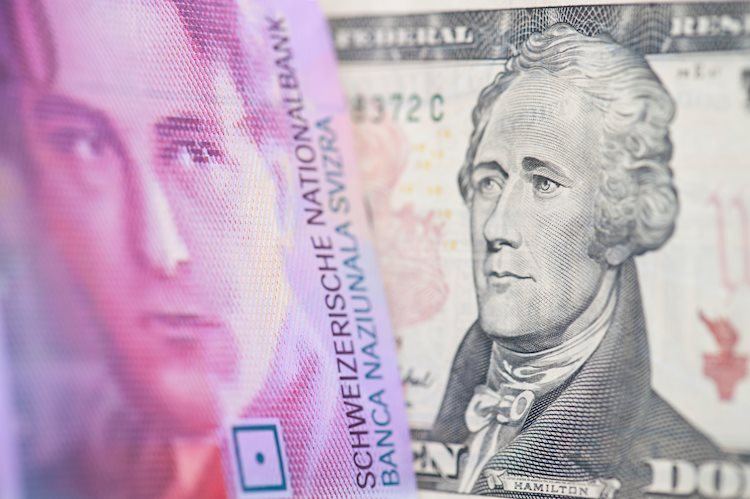The USD/CHF pair is currently trading in negative territory, hovering around 0.8655 in the early European session on Thursday. This downward trend can be attributed to the ongoing global political uncertainties and geopolitical risks that have been boosting the Swiss Franc (CHF) as a traditional safe-haven asset. Investors are closely watching the US Presidential election on November 5th and tensions in the Middle East, which are contributing to the strengthening of the CHF. Meanwhile, the US economic data continues to point towards a resilient economy, supporting the possibility of less aggressive policy easing by the Federal Reserve (Fed). This could potentially limit the downside for the US Dollar (USD) in the near term. Market expectations currently indicate a 96% probability of a 25 basis points rate cut by the Fed based on CME’s FedWatch Tool. Traders are also awaiting key US economic indicators such as the Personal Consumption Expenditure (PCE) Price Index and Nonfarm Payrolls data, which will be released later this week.
The Swiss Franc (CHF) is the official currency of Switzerland and ranks among the top ten most traded currencies globally, exceeding the country’s economic size. The value of the CHF is influenced by various factors, including market sentiment, the country’s economic performance, and actions taken by the Swiss National Bank (SNB). The Swiss Franc was previously pegged to the Euro (EUR) between 2011 and 2015, with the peg being abruptly removed leading to a significant increase in its value. Despite the removal of the peg, the fortunes of the CHF are closely tied to the Euro due to Switzerland’s strong economic ties with the Eurozone.
The Swiss Franc is often considered a safe-haven asset, attracting investors during times of market instability. Switzerland’s stable economy, robust export sector, large central bank reserves, and neutral political stance in global conflicts contribute to the CHF’s status as a safe-haven currency. In times of turmoil, investors tend to flock to the Swiss Franc, strengthening its value against riskier currencies. The Swiss National Bank (SNB) meets quarterly to decide on monetary policy, aiming to maintain an inflation rate of below 2%. Changes in interest rates by the SNB can impact the value of the CHF, with higher rates typically strengthening the currency.
Economic data releases in Switzerland play a crucial role in assessing the country’s economic health and impacting the valuation of the Swiss Franc. Factors such as economic growth, inflation, unemployment rates, and currency reserves can influence the CHF’s performance in the forex market. Positive economic indicators such as strong growth, low unemployment, and high consumer confidence typically support the CHF, while any signs of economic weakness can lead to depreciation of the currency. Switzerland’s close economic ties with the Eurozone also play a significant role in determining the CHF’s value, as stability in the Eurozone is essential for Switzerland’s economy.
Given Switzerland’s heavy dependence on the Eurozone economies as its main economic partner and political ally, macroeconomic and monetary stability in the Eurozone are crucial for the Swiss Franc. The correlation between the Euro (EUR) and the CHF is high, with some models suggesting a correlation of more than 90%. Any developments in the Eurozone can impact the CHF, highlighting the importance of monitoring Eurozone economic indicators for insights into the CHF performance. Overall, the Swiss Franc’s stability and status as a safe-haven currency make it an attractive choice for investors seeking refuge during times of market uncertainty.


























